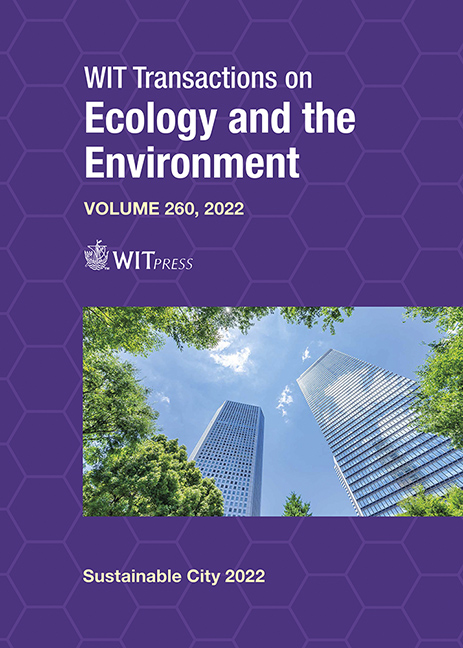SMART MATERIALS AND ADAPTIVE BUILDING ENVELOPES AS AN APPROACH FOR REDUCING ENERGY CONSUMPTION IN EGYPT: A LITERATURE REVIEW
Price
Free (open access)
Transaction
Volume
260
Pages
13
Page Range
13 - 25
Published
2022
Paper DOI
10.2495/SC220021
Copyright
Author(s)
SAMAR AWAD ABDELHAMED SOLIMAN, IBRAHIM ELSAYED MAAROUF IBRAHIM, MAI MOHAMED ABDO IBRAHIM
Abstract
In the last 10 years, a quantum leap occurred in Egypt in the field of architecture that led to the consumption of large quantities of energy during implementation. It was noted that most of the buildings were designed to mimic the technological development in the architectural formations’ trends globally, without considering the environmental impacts in Egypt or the resources availability in the future to operate these buildings. Therefore, the research was built on the premise that the operating cost will be prohibitively expensive, which requires offering solutions that can be applied during or after implementation in the operating stage that can help to control the cost of the building life cycle. The initial hypothesis of the research was about finding a solution for energy consumption percentages and controlling cost throughout using different types of smart materials that being used in the building envelope and its effect on the building performance, especially public utility buildings. Other reasons for this research are to help in protecting natural resources and achieve more adaptation for the building envelope throughout performing alternative materials characteristics, and to achieve Egypt Vision 2030 (SDS) and the global vision SDGs.
Keywords
material characteristics, energy consumption, operating cost, Egypt vision, building envelope, performance, numerical simulation





